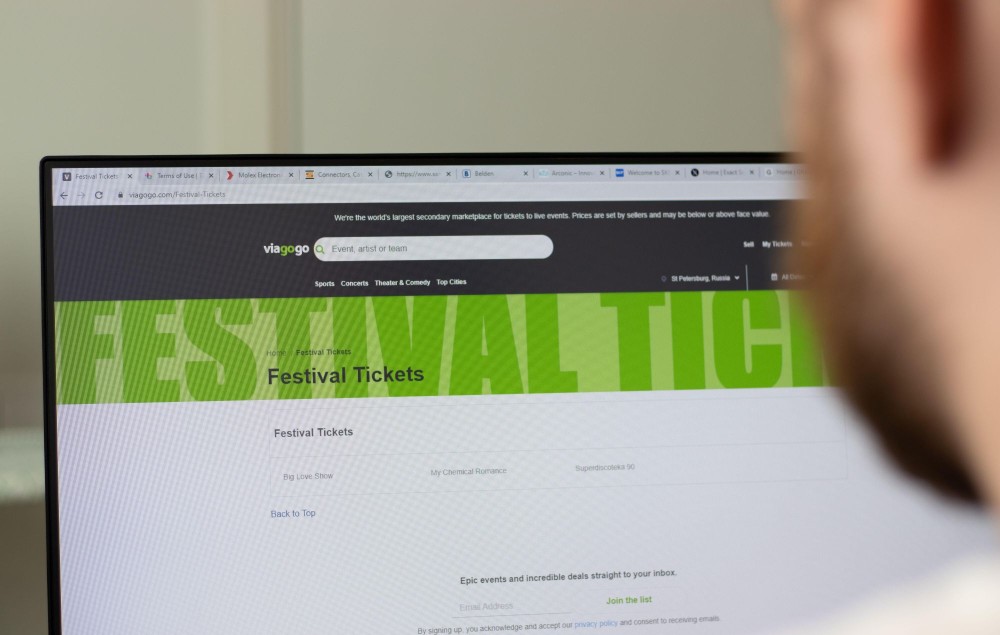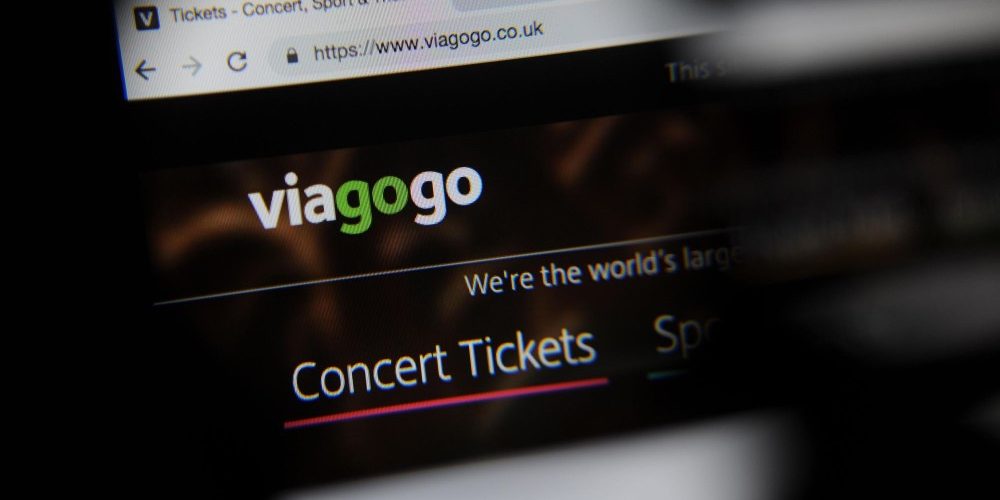Most festival tickets on Viagogo are sold by just three traders, investigation finds
The majority of tickets sold on Viagogo are passed on by only three traders, a new investigation has found.
ITV News and the campaign group FanFair Alliance worked together over a period of three months to find that tickets on the resale site were being sold by three traders, meaning that fewer than 10 per cent of tickets were being sold by ordinary consumers.
174 festivals and outdoor events were looked at during the investigation period, totalling 11,000 tickets. Of those, just over two-thirds were being sold by three traders with a combined face value of approximately £730,000. The total they were attempting to sell them for, however, was much higher at an estimated £1.7million.
ITV News questioned how so few traders managed to get their hands on thousands of tickets and found that technically they hadn’t. Speculative selling, which is illegal, is what these traders were allegedly practicing: selling tickets that they didn’t own to a customer, only to buy them post-sale and then forward the ticket on at a later time.

Ed Townend runs a small rock festival in Wales called Cardiff Psych and Noise. When the publication went to meet him in April 2022, tickets for his event had only just gone on sale.
The outlet found that 20 tickets were being advertised by two sellers on Viagogo, which Townend said was a surprise. “It doesn’t make any sense to me because when you look at the backend of our ticket sales, we’ve only sold 14 tickets to the event.”
“Total,” he added. “That doesn’t make any sense to me. We haven’t announced a lineup, we’re not expected to sell many tickets already, but to sell 20 tickets, I would’ve seen 20 tickets sold to two individuals, ten tickets each, but that hasn’t happened at all.”
Chloe Keedy, the reporter for ITV News, experimented by buying a ticket from one of the sellers. She claimed that she paid £165 to a trader by the name of MAS E.L, and that company is publicly listed as being owned by someone called Marc Stanley.
After her purchase, a Marc Stanley made his own purchase of one ticket from the organiser of Cardiff Psych and Noise. Shortly afterwards, a ticket with his name was sent to Keedy.
10 festivals were listed by Marc Stanley on Viagogo and two other traders, ITV News found. Two festivals said the sellers had bought some tickets but nowhere near the number being advertised, and the rest said they had no record of those sellers buying any tickets at all.
ITV reported that when they visited MS at his registered business address he declined to speak with them and that listings in his name disappeared from Viagogo’s site within an hour.
In 2020 the National Trading Standards successfully prosecuted two ticket touts for engaging, amongst other things, in speculative selling.
Two ticket touts who made £9.3million re-selling Ed Sheeran and Adele concert tickets were jailed that February. Peter Hunter and his civil partner David Smith used various identities and computer bots to purchase a large amount of tickets.
A spokesperson for Viagogo responding to the new investigation said: “We treat concerns about tickets with the utmost priority. In this instance, we acted swiftly to remove the relevant listings and have returned several to the site that have clearly demonstrated that they are legitimate and valid.
“We continue to review the remaining listings and these remain off site.”
Fans may still query why Viagogo can’t do checks before it allows traders to sell huge quantities of tickets on its site.
Currently, Viagogo is not required by law to fact-check the details of every ticket listed on its site although it does have to complete more checks than it used to.
View this post on Instagram
Earlier this year Jamie Webster shared a video that went viral in which he criticises ticket resale sites, former culture secretary Sajid Javid and the way politics is “entwined” with the music industry.
In May, Parklife festival announced a last minute ticket re-sale after extra tickets were made available via an anti-tout scheme and failed payment plans.
The Heaton Park, Manchester festival teamed up with Greater Manchester Police to secure fake or stolen tickets that were being resold to unsuspecting victims at inflated prices.
Additionally, a number of failed payment plans by intended attendees meant that more tickets are were being released for the June 11-12, 2022 event.
Graeme Openshaw, GMP Chief Superintendent, said at the time: “We recognise that for an event such as Parklife that there are many people who will be unable to get tickets. Unfortunately every year we deal with unsuspecting victims who buy tickets from touts and get ripped off because the ticket turns out to be a fake or stolen.
“Our advice would always be that if you don’t know where the ticket has come from and don’t know the person who is selling it to you don’t be tempted to buy it.”
